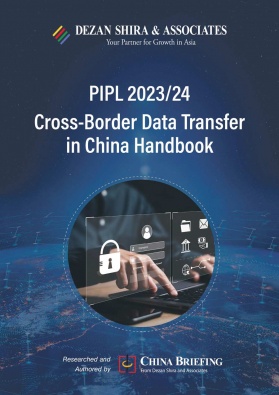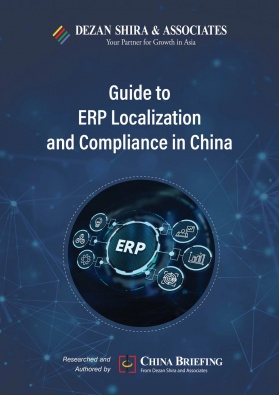China Monthly Tax Brief: May 2024
In this China Monthly Tax Brief for May 2024, we highlight significant developments in taxation for both businesses and individual taxpayers.
- The administrative measures for beneficial owner information have been released. Business entities are now required to file relevant information after November 1, 2024, with a one-year grace period.
- The Shenzhen Qianhai Cooperation Zone has expanded its Corporate Income Tax (CIT) policies to cover more areas. Furthermore, the Individual Income Tax (IIT) incentive for Hong Kong residents has materialized, providing tax benefits to eligible individuals.
- In terms of tax certainty, multiple cities, including Beijing and Maoming (Guangdong province), have issued guidelines regarding advanced tax rulings. These guidelines aim to offer more clarity and predictability to businesses operating in these regions.
- Lastly, the Greater Bay Area (GBA) IIT subsidy application for the year 2023 has commenced in Shenzhen.
PBOC and SAMR issued measures regarding the filing of beneficiary owner information
The People’s Bank of China (PBOC) and the State Administration for Market Regulation (SAMR) have jointly issued the Administrative Measures on Beneficial Owner Information (hereinafter referred to as the “Measures”), which will take effect from November 1, 2024.
These measures are designed to enhance market transparency, maintain market and financial order, and prevent money laundering and terrorist financing activities.
According to the Measures, a beneficial owner refers to a natural person who ultimately owns or controls the registered entity or enjoys the ultimate benefits of the registered entity. A natural person meeting any of the following criteria is considered a beneficial owner of the registered entity if he or she:
- Directly or indirectly holds 25 percent or more of the equity, shares, or partnership interests of the registered entity;
- Although not meeting the first criterion, holds 25 percent or more of the income rights or voting rights of the registered entity; or
- Although not meeting the first criterion, individually or jointly exercises actual control over the registered entity.
The Measures require entities other than individually owned businesses, including companies, partnerships, and foreign company branches, to record beneficial ownership information through relevant registration systems after November 1, 2024. Enterprises registered before November 1, 2024, have a one-year grace period, meaning they must complete beneficial ownership information filings before November 1, 2025.
Additionally, for registered entities with a registered capital not exceeding RMB 10 million (or its equivalent in foreign currency) and where all shareholders or partners are natural persons, there is an exemption. If there are no natural persons other than shareholders or partners exercising actual control over the entity or benefiting from it through means other than equity or partnership interests, these eligible entities can read and confirm a commitment letter in the system to be exempted from further reporting of beneficial ownership information.
It’s important to note that there may be more than one natural person considered a beneficial owner and any natural person meeting the criteria should be filed as a beneficial owner. If none of the criteria can identify a beneficial owner, the person responsible for daily management should be treated as the beneficial owner.
As a significant measure to optimize the business environment in China, the establishment of the beneficial ownership information filing system will enhance information symmetry and mutual trust among business entities, improve transaction security and efficiency, and help prevent irregularities such as shell companies, false capital injections, and nested shareholding. This system aligns with established international practices.
Furthermore, in consideration of the security and privacy of beneficial ownership information, the recorded data will not be publicly disclosed but will be accessible only to government departments and anti-money laundering obligated institutions for fulfilling their legal duties.
The PBOC also promised to issue more detailed guidelines to guide entities with complex ownership structures to file the beneficiary owner information.
Read more: China’s Enhanced Beneficiary Owner Filing System: Key Points of New Measures
Shenzhen’s Qianhai Cooperation Zone Expands Preferential IIT and CIT Policies
The Shenzhen Municipal Tax Bureau, Shenzhen Municipal Finance Bureau, and State Tax Administration have released two notices expanding a preferential individual income tax (IIT) and corporate income tax (CIT) policy for companies and individuals working in the Qianhai Shenzhen-Hong Kong Modern Service Industry Economic Cooperation Zone (“Qianhai Cooperation Zone”).
Under the expanded policies, Hong Kong residents working in the Qianhai Cooperation Zone, a development zone located in Shenzhen, will be exempted from paying the portion of IIT exceeding their salary tax burden in Hong Kong. In addition, a 15 percent CIT rate, reduced from the standard 25 percent rate, has been expanded to the entire Qianhai Cooperation Zone.
This refers to a 120.56 square kilometers area covering the Shekou and Xiaonanshan areas, the adjacent Convention and Exhibition City and Ocean New City areas, the airport and surrounding areas, the Bao’an central area and Dachan Bay area, and the initial 14.92 square kilometer area.
More details are summarized in the following table.
| Qianhai’s Expanded CIT and IIT Policies | ||
| Tax | Current policy | Validity |
| IIT | Hong Kong residents working in the Qianhai Cooperation Zone can be exempted from paying the portion of their IIT burden that is in excess of what they would pay in salary tax in Hong Kong. | January 1, 2023, to December 31, 2027 |
| The income covered includes comprehensive income derived from Qianhai (including wages, salaries, labor remuneration, royalties, and franchise fees), operating income, and talent subsidy income certified by the local government.
|
||
| The Hong Kong residents eligible for this policy can enjoy this preferential policy when settling their annual IIT in Qianhai.
|
||
| The policy applies to the entire Qianhai Cooperation Zone as designated in the “Development Plan”. | ||
| CIT | Companies whose head offices are located in the Qianhai Cooperation Zone can enjoy the 15 percent tax rate on the eligible income garnered by the head offices and branches located in the cooperation zone.
For companies with institutions outside the zone, the 15 percent CIT rate will only apply to the income from branches located in the zone that meets itself that meet the relevant requirements.
|
January 1, 2023, to December 31, 2025 |
| The 15 percent preferential CIT policy available to eligible companies will be expanded to cover the entire Qianhai Cooperation Zone. | ||
| Companies must be engaged in certain encouraged industries and have “substantial operations” within the zone. Under this criterion, more than 60 percent of a company’s total income raised in the Qianhai Cooperation Zone must be derived from one of the industrial projects specified in the “Qianhai Shenzhen-Hong Kong Modern Service Industry Cooperation Zone Enterprise Income Tax Preferential Catalog (2021 Edition)”. | ||
On May 17, 2024, several government departments in Shenzhen jointly issued an Announcement Clarifying the Relevant Issues Regarding the Preferential CIT Policy for Enterprises in the Qianhai Shenzhen-Hong Kong Modern Service Cooperation Zone. This clarification further specifies the substantive operational conditions for enjoying the corporate income tax incentives within the region.
The recent announcement provides clear guidelines regarding the substantive operational criteria for enterprises operating within the Qianhai Cooperation Zone. These criteria encompass various aspects, including production, personnel, finances, and assets. Each criterion is thoroughly explained.
Moreover, eligible enterprises that benefit from preferential policies can independently assess whether they meet the substantial operation criteria. Upon commitment, they can enjoy the 15 percent CIT incentive. These enterprises are also required to retain relevant documents for potential inspections. As part of the process, they complete a “Substantive Operation Self-Assessment Commitment Form” during the annual CIT settlement and payment.
This initiative aims to encourage business growth, enhance transparency, and foster a competitive business environment within the Qianhai Cooperation Zone. According to the official interpretation, the following situations are considered non-compliant with substantive operations:
- Lack of production and operational functions, with only responsibilities related to financial settlement, tax declaration, and invoice issuance for business outside the Qianhai Cooperation Zone.
- Inconsistency between the registered address and the actual operating address, with no ability to establish contact or provide the actual operating address.
Insights from Dezan Shira & Associates:
The expansion of the CIT incentives will significantly enhance the appeal for businesses to invest in the Qianhai Cooperation Zone. By providing comprehensive tax incentives, more companies will be encouraged to establish operations within the zone, thereby fostering a fair and competitive business environment and driving further industrial development.
Under the IIT incentive policy, taxpayers are still required to declare their full IIT amount during prepayment. However, during the annual settlement and payment process, they can claim the lower IIT rate on their profits. This arrangement aims to alleviate the tax burden for Hong Kong residents working in Qianhai, making it an attractive destination for talent retention and recruitment.
Deepening tax administration reform: Beijing and Maoming both introduced advance tax ruling mechanisms
As tax administration reform deepens, the advance tax ruling mechanism is gradually being promoted in China. The branches of State Taxation Administration (STA) in Beijing and Maoming, Guangdong have respectively issued the Measures regarding advance tax ruling (the Beijing measures and the Maoming announcement). These measures aim to optimize the business environment, enhance tax policy certainty, and provide efficient services.
“Advance tax ruling” refers to the tax authority providing written guidance on how to apply existing tax laws, regulations, rules, and normative documents (referred to as “tax policies”) to specific complex and significant tax matters that are expected to occur in the future. This service is offered upon request by enterprises seeking clarity on their tax obligations.
Below we summarize Beijing and Maoming’s advance tax ruling policies in the table:
| Beijing | Maoming (Guangdong) | |
| Applicable entities | Local taxpayers within the city | Large enterprises within the city |
| Applicable scope | Specific, complex, and significant tax-related matters expected to occur in the future | Legal business activities and transaction arrangements that are definite and about to take place, including:
· Significant changes in internal organizational structure and business models related to taxation. · Tax matters related to equity transfers and equity incentives. · Tax matters related to major investments and financing activities. · Tax matters related to policy-driven relocations. · Tax matters related to cross-border investments. · Other potentially significant and complex tax matters |
| Inapplicable matters | · Items without a definite project plan or those that will not occur in the near future (within 24 months).
· Matters lacking a reasonable business purpose or explicitly prohibited by relevant national laws and regulations. · Matters covered by existing tax policies with clear provisions that can be directly applied, as well as matters requiring tax legislation. · Matters with similar characteristics to transactions completed by the applicant in previous years, where the tax authorities are still in communication without a tax processing conclusion. · Other matters not suitable for advance tax rulings. |
· Tax matters that have already occurred for the taxpayer.
· Matters not covered by existing tax laws, regulations, rules, or normative documents, requiring tax legislation or purely theoretical questions. · Items without a definite project plan or those that will not occur in the near future. · Matters lacking a reasonable business purpose or explicitly prohibited by relevant national laws and regulations. · Matters involving interpretations of foreign laws. · Matters beyond the scope of the tax authority’s functional jurisdiction. · Other matters not suitable for advance tax rulings. |
Both regions’ advance tax ruling methods emphasize the importance of active communication with tax authorities and adequate preparation of materials. In Beijing, the advance tax ruling method specifies that applicants should promptly report any changes in their circumstances, and the competent authority will make rulings based on the latest information. Similarly, in Maoming, the advance tax ruling mechanism underscores the significance of communication with tax authorities and material preparation.
By far, apart from Beijing and Maoming, other regions such as Guangzhou Nansha, Shanghai, the Nanjing area of the Jiangsu Free Trade Zone (FTZ), Dongfang City and Ding’an County in Hainan Province, and Qitaihe City in Heilongjiang Province have all issued similar policies. While Guangzhou Nansha and Shanghai have detailed ruling methods, other areas provide an overview of their local implementation of the ruling mechanism. Additionally, cities like Shenzhen, Guangzhou, Ningbo, Qingdao, and Xiongan New Area have also established regulations related to advance tax rulings, although these have not yet been officially disclosed.
Taxpayers with such needs are advised to maintain close communication with the local tax authorities responsible.
Other key tax updates in May
In addition to the above, other tax-relevant updates in May include:
- Greater Bay Area (GBA) IIT Subsidy Kicked Off in Shenzhen 2024: The Shenzhen Finance Bureau and three other departments recently released the Guidelines on the Application of IIT Subsidies by Overseas High-End and Urgently-Needed Talents for the 2023 Tax Year, which kickstarted the application of the GBA IIT subsidy this year. According to the Shenzhen Guidelines, the city will begin accepting individual applications starting from May 15, 2024. The deadline for both individual applications and applications through employers is June 15, 2024.Eligible taxpayers should submit their applications and supporting documentation through the designated system before the deadline. (Read more: Greater Bay Area (GBA) IIT Subsidy Kicked Off in Shenzhen 2024)
- MOF and STA released guidelines on main tax incentives to the manufacturing industry: The Ministry of Finance (MOF) and STA have released Guidelines on the Main Preferential Tax And Fee Policies Available to the Manufacturing Industry in China. The guidelines consolidate the main preferential policies currently in force and explain the main eligibility requirements to enjoy them. (Read more: Tax Incentives for Manufacturing Companies in China in 2024)
- Tariff exclusion for 124 US products extended to November 30, 2024: According to the announcement released by the Customs Tariff Commission of the State Council, the exclusion period for tariff-included goods from the United States has been extended until November 30, 2024. The previous exclusion period was set to end on April 30, 2024. The extended period applies to 124 items, including rare earth metal ores, gold sands, medical disinfectants, high-speed television cameras, night vision digital cameras, and radar equipment for navigation.
- Preferential tax policy for imported exhibits extended to 2025: According to Cai Guan Shui [2024] No.10 (Circular No. 10) jointly issued by the MOF, STA, and the General Administration of Customs, relevant provisions regarding tax incentives for imported exhibits as stipulated in the Cai Guan Shui [2023] No.5 (Circular No.5) will continue to be implemented till 2025. From 2024 to 2025, during the exhibition period of the China Import and Export Commodities Fair (Canton Fair), import exhibits sold within the duty-free quota will continue to be exempt from import duties, import value-added tax, and consumption tax. Additionally, the scope of exhibits eligible for these preferential policies remains consistent with the list provided in Circular No.5. It’s important to note that specific products such as tobacco, alcohol, and automobiles are not covered by these preferential policies.
Also read:
- China Monthly Tax Brief: April 2024
- China Monthly Tax Brief: March 2024
- China Monthly Tax Brief: February 2024
- China Monthly Tax Brief: January 2024
The information provided is for general purposes only and may not account for local variations. No liability is assumed for the completeness or accuracy of the information. For personalized advice on specific business queries, consult our experts at Dezan Shira & Associates by emailing China@dezshira.com.
About Us
China Briefing is one of five regional Asia Briefing publications, supported by Dezan Shira & Associates. For a complimentary subscription to China Briefing’s content products, please click here.
Dezan Shira & Associates assists foreign investors into China and has done so since 1992 through offices in Beijing, Tianjin, Dalian, Qingdao, Shanghai, Hangzhou, Ningbo, Suzhou, Guangzhou, Haikou, Zhongshan, Shenzhen, and Hong Kong. We also have offices in Vietnam, Indonesia, Singapore, United States, Germany, Italy, India, and Dubai (UAE) and partner firms assisting foreign investors in The Philippines, Malaysia, Thailand, Bangladesh, and Australia. For assistance in China, please contact the firm at china@dezshira.com or visit our website at www.dezshira.com.
- Previous Article Tax Implications for Businesses Under China’s New Company Law
- Next Article Navigating China’s Evolving Approach to Human Genetic Resources: Insights on Regulatory Changes























